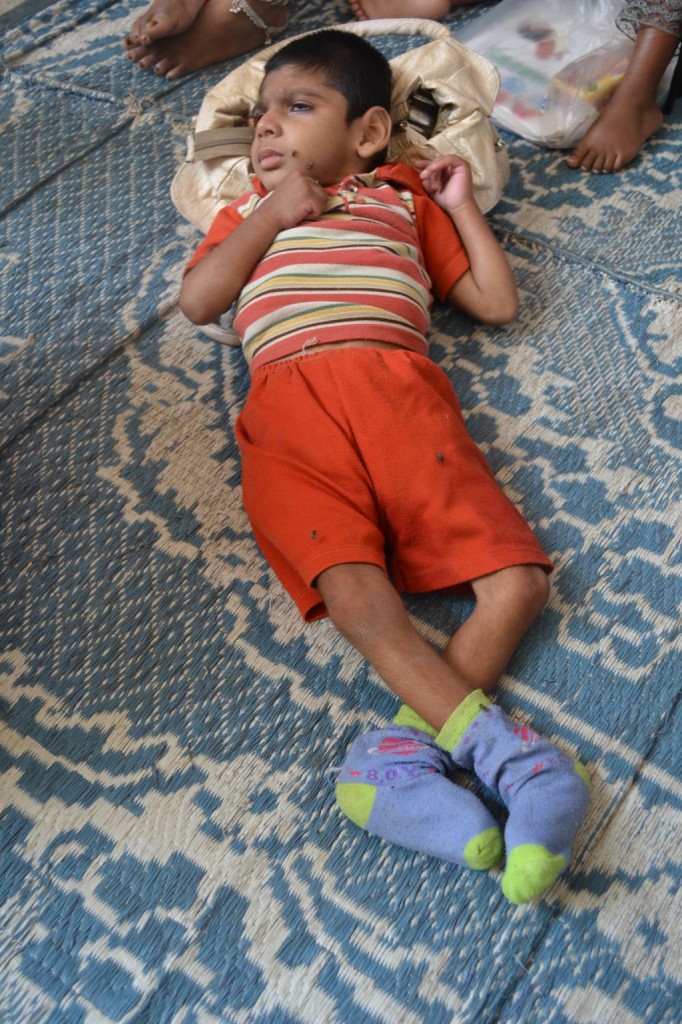Union Carbide Gas Disaster
I recently visited Bhopal with my friend to explore the city and meet the NGOs still working on the Bhopal Gas Disaster that shook India in 1984. Before going, I had no idea about which organizations were active there, so I called my friend Nandlal Master from Lok Samiti in Varanasi. Nandlal is a well-known social activist, and he suggested I visit the Chingari Trust. He knew about it because the Trust awards women fighting against exploitative corporations, and five women from his own NGO in Varanasi had once been recognized by them. I assumed there would be several NGOs still working on the issue in Bhopal, but to my surprise, I learned that Chingari Trust was practically the only one consistently helping survivors on a large scale.
First Impressions
When I called, the Chingari Trust staff were warm and welcoming. They invited me to visit their office and rehabilitation center near the affected area. Initially, I expected a small office with a few staff members. But as soon as I entered, I was shocked—there were dozens of families, many of them with children born with physical and neurological disabilities caused by the gas tragedy and its after-effects. I saw nearly a hundred children, ranging from infants to teenagers, participating in physical therapy and rehabilitation programs. It was heartbreaking. Until then, I had assumed that only people directly exposed during the 1984 disaster were affected, but I discovered that children are still being born with disabilities due to lingering chemical contamination.
The Work of Chingari Trust
The work being done at Chingari Trust left a deep impression on me. The organization was founded by Rashida Bee and Champadevi Shukla, two women who themselves suffered from the gas tragedy. Rashida Bee even received a major international award of around Rs. 50 lakhs in San Francisco for her activism, and instead of keeping the money, she used it to establish Chingari Trust and donated the rest back to the cause. Their center provides physiotherapy, speech therapy, occupational therapy, and counseling to affected children free of cost. Despite their efforts, Rashida Bee told me they are struggling to meet the overwhelming demand and are now working on building a new hospital dedicated to survivors and their children.
Contaminated Water – The Ongoing Disaster
Later, I spoke to the IT coordinator at the Trust, who gave me a tour of the surrounding area. He explained that the tragedy didn’t end in 1984. The factory site continues to leak harmful chemicals into the groundwater, which thousands of nearby families still rely on. This contaminated water is directly linked to ongoing health problems and birth defects in the community. When we walked only ten minutes from the Trust’s office, I was shocked again. Families were living right across the road from the abandoned Union Carbide factory, now owned by Dow Chemicals. It looked like any other crowded Indian neighborhood, but beneath the surface, people were living with poisoned soil and water.
Questions Without Answers
My American friend Lane, who was with me, pointed out that in the United States, factories dealing with such dangerous chemicals are usually built far from populated areas. It made me wonder: why did our government allow this factory to operate in the middle of a city in the first place? And even after the disaster, why didn’t they relocate residents to safer areas? It is impossible to avoid the conclusion that both Union Carbide (and now Dow Chemicals) and sections of the Indian government are equally responsible for the ongoing suffering. The politics and corporate influence behind this tragedy are undeniable, but the fact remains: thousands of innocent lives were destroyed and continue to be endangered. Accountability has been delayed for far too long.
Final Thoughts
My visit to Chingari Trust completely changed the way I understood the Bhopal Gas Disaster. This was not just an accident of the past; it is a living tragedy that still haunts the people of Bhopal every single day. Meeting Rashida Bee and seeing the resilience of affected families was deeply moving. The story of Bhopal is not only about corporate negligence, but also about government apathy. Until justice is served and proper rehabilitation is provided, the victims of Bhopal will continue to remind us of how dangerous unchecked industrial greed and weak governance can be.








Hi
Nandan,
Sir you are doing an amazing job and your blog is really very interesting and knowledgeable. Sir I would like you to guide me on how work actively with an NGO.
Thanking you,
Anwesha